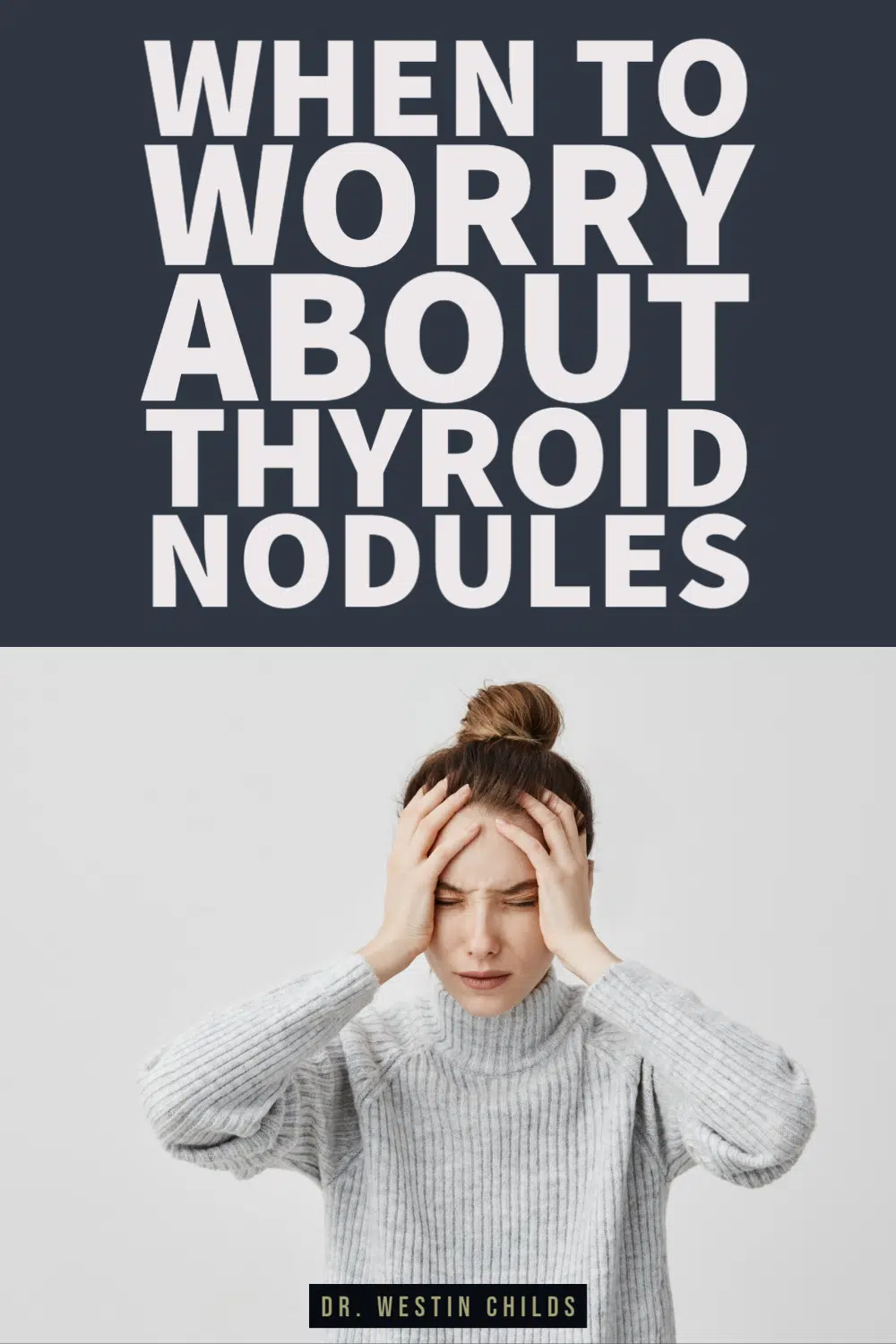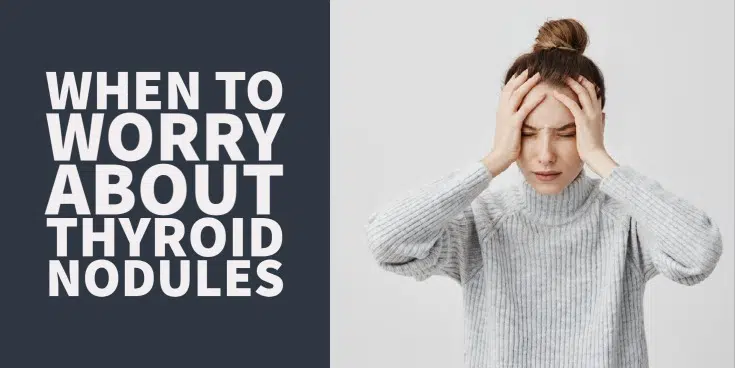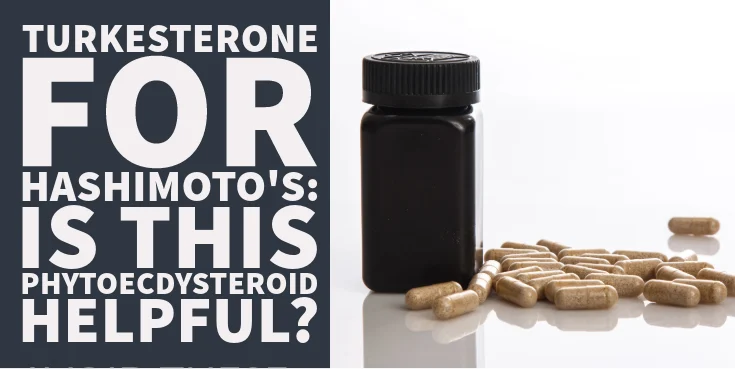Is your thyroid nodule actually thyroid cancer in disguise?
This is the question that most people ask themselves and it’s the question we are going to explore today.
The good news is that most nodules are NOT cancerous and there are certain signs and symptoms, if present, that do increase the chance that your nodule may be harboring cancer.
Signs your Thyroid Nodule May be Something More
The biggest fear that most people have when it comes to thyroid nodules is whether or not they should worry about it.
And this makes a lot of sense, considering the thing you should be worried about is your risk of cancer.
Why?
Because each thyroid nodule, regardless of the size, has a small risk of turning into thyroid cancer.
The good news is that this is actually quite rare.
If we looked at the population of the world we would find that about 20 to 70% of people (1) have a thyroid nodule!
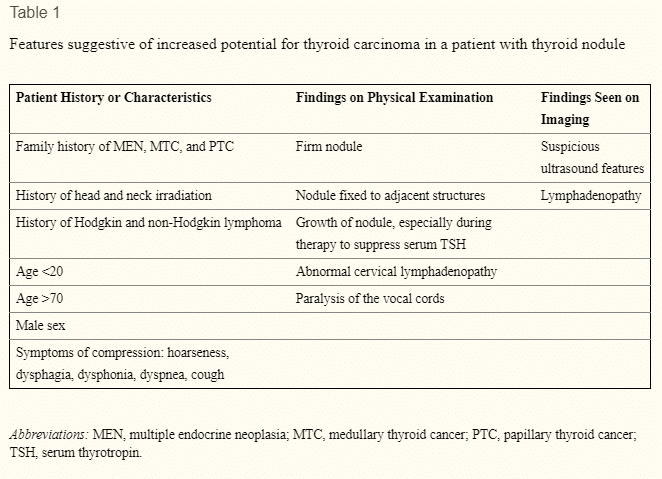
Obviously, thyroid cancer is not nearly as common which means that most people with thyroid nodules do NOT get thyroid cancer.
Having said that, there are some people that will, which is what we are going to talk about now.
If you have a thyroid nodule AND you have any of these other signs or symptoms, then you may be at a slightly higher risk of thyroid cancer:
- The size of your thyroid nodule is greater than 2.0 cm or 20 mm (a size greater than 1.0 cm or 10 mm may also be worrisome as well)
- Unexpected weight loss
- Difficulty swallowing
- Changes to your voice or hoarseness when you talk
- Pain or discomfort in the neck area
- Enlargement of the lymph nodes in or around your neck
- A noticeable or irregular lump in your neck
- Symptoms of hyperthyroidism (weight loss, heart palpitations, sweating, nervousness, heat intolerance)
- If you have a thyroid nodule and you are younger than 20 years old or if you have a thyroid nodule and you are older than 70
Let me be clear, though, just having these symptoms does not guarantee that you have thyroid cancer.
But if you do have these signs/symptoms then it’s probably a good idea to get checked out by your doctor with advanced testing such as ultrasound or even a biopsy (more information below).
DOWNLOAD FREE RESOURCES
Foods to Avoid if you Have Thyroid Problems:
I’ve found that these 10 foods cause the most problems for thyroid patients. Learn which foods you should avoid if you have thyroid disease of any type.
The Complete List of Thyroid Lab tests:
The list includes optimal ranges, normal ranges, and the complete list of tests you need to diagnose and manage thyroid disease correctly!
Thyroid Nodules are usually Benign and Not Cancerous
The good news is that most people with thyroid nodules do not and will not get thyroid cancer.
The bad news is that a thyroid nodule is not normal and may be associated with other conditions of your thyroid gland.
So, even if you don’t have thyroid cancer, you should still have your thyroid nodule evaluated and tested for other conditions which are associated with thyroid nodules.
Conditions in this category include:
- Goiter – Conditions such as iodine deficiency can lead to an enlargement of your thyroid gland. This condition may also contribute to the development of nodules.
- Thyroid cysts – Thyroid cysts are a type of thyroid nodule but they are filled with fluid. These cysts are often identified very easily with thyroid ultrasound but can present the same way as a thyroid nodule.
- Hashimoto’s thyroiditis – Hashimoto’s thyroiditis is an autoimmune condition of the thyroid gland which also causes hypothyroidism. This condition is very common, especially among women.
- Other types of thyroiditis – Infections, trauma, and autoimmune attack can all cause inflammation of the thyroid gland. Inflammation triggers damage to the thyroid gland which may lead to the development of a thyroid nodule.
- Hyperthyroidism – Most thyroid nodules do not secrete thyroid hormones but some “hot” nodules can actually secrete thyroid hormones which may cause the symptoms of hyperthyroidism. If you have hyperthyroid-Esque symptoms then your doctor should evaluate for these hot nodules.
- Thyroid cancer – Some nodules are associated with thyroid cancer but this is actually quite rare. Only about 5-10% of thyroid nodules are cancerous.
It’s important to realize that many thyroid nodules are just run-of-the-mill nodules that are not associated with thyroid disease of any kind.
But, in order to be on the safe side, it’s ideal that every patient who has a thyroid nodule undergoes certain tests to ensure that this is the case.
Tests such as a comprehensive history and physical, palpation of the thyroid gland, tests of your thyroid function through blood work, and even ultrasound may all be warranted.
Your doctor should be walking you through these steps but you can also ask for them if you are worried.
How Big is Too Big?
When it comes to thyroid nodules, the size matters quite a bit.
Studies have shown time and time again that larger thyroid nodules tend to turn into thyroid cancer at a higher rate compared to smaller thyroid nodules.
The magic number in terms of size is 1 cm or 10mm.
But size isn’t the only thing that matters.
For instance:
It has been shown that even small thyroid nodules can be cancerous if they have certain and specific findings on thyroid ultrasound.
“The number of nodules and their size are not predictive of malignancy, as a nodule smaller than 1 cm is as likely as a larger nodule to harbor neoplastic cells in the presence of suspicious US features.”
– Thyroid Nodules by Popoveniuc and Jonklaas (2)
For this reason, you never want to judge the risk of thyroid cancer based on the size of your nodule alone.
You will notice that while size is certainly a risk factor, you should also look at other risk factors including whether or not the nodule is causing symptoms, your age, and what the nodule looks like on ultrasound.
As a patient, though, you can use the size of your nodule as a quick and dirty way to assess whether or not you should be worried.
Thyroid Nodules and Thyroid Cancer
The biggest concern on most people’s minds is probably whether or not their thyroid nodule is actually cancer in disguise.
As I mentioned previously, most thyroid nodules (about 90% or so) are benign.
But that leaves another 5-10% which can be cancerous and should be evaluated.
There are some factors that have been evaluated that can help you understand your risk of thyroid cancer.
The risk of thyroid cancer increases with these risk factors:
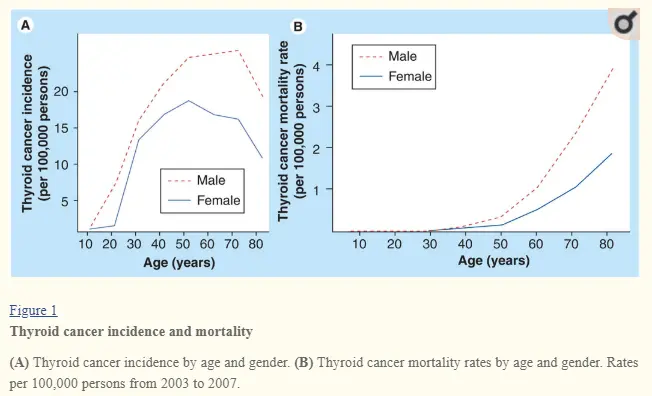
- Age – The younger or the older you are, the more likely your nodule is to be cancerous. This is true if you have a thyroid nodule are you are younger than 30 or older than 60.
- Gender – Women tend to get thyroid cancer more often than men but thyroid cancers in men tend to be more aggressive.
- Genetics (family history) – Do you have a family history of thyroid cancers or thyroid nodules? If so, this may increase your risk.
- Size of the nodule – The bigger the nodule the greater your risk of cancer.
- History of radiation exposure – Radiation exposure from things such as X-rays and CT scans may increase your lifetime risk of developing thyroid cancer. If you undergo these types of tests ensure that your thyroid gland is protected with a lead shield.
- History of other cancers – Do you have a history of other cancers? Especially endocrine (hormone) cancers such as MEN (3), MTC, or PTC? If so, your risk of developing thyroid cancer is increased.
- How fast the nodule is growing – Most thyroid cancers are actually slow growing. This is why doctors recommend that you get frequent ultrasound testing of your thyroid nodule every 6 to 18 months (4).
- Symptoms that are associated with your nodule – Symptoms such as a chronic cough, pain in the neck, and lymph node enlargement are all suspicious symptoms.
Ultrasound Testing & Manual Exams
There are really three different ways to test or evaluate your thyroid nodule.
The first is with a manual exam, usually performed by your doctor.
This is an easy way to test whether or not you need further testing.
Your doctor can do this when you visit him/her in the office.
This test is usually done by manually feeling or palpating the thyroid gland while the patient (you) is taking a drink of water.
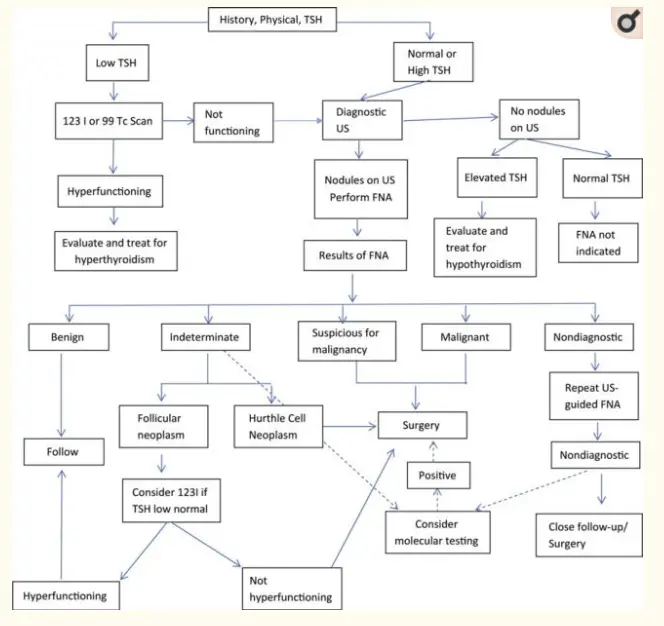
The second is ultrasound testing, usually performed by an ultrasound technician and read by a radiologist.
Ultrasound testing can help you to understand if your thyroid nodule looks suspicious or not.
There are certain factors, or characteristics, which, if present, may increase your risk of having thyroid cancer.
These factors include:
- The presence or absence of calcification – Microcalcifications (5) found within thyroid nodules may suggest the presence of thyroid cancer.
- The shape of the nodule – If your thyroid nodule is taller than it is wide (6) then that is a risk factor for thyroid cancer.
- The vascularity of the nodule – The presence of vascularity by Doppler ultrasound (7) is also suspicious for thyroid cancer.
- The margins of the nodule – Nodules which have irregular borders, which look ‘infiltrative’ (8), or which have speculated margins are all suspicious.
Your ultrasound report should include this information and you can request this information from your primary care doctor or your radiologist.
But, even if you request the information, you should have your doctor also evaluate this information to help you understand it.
You can also technically evaluate thyroid nodules with other tests such as MRI and CT scans but these are not often recommended.
The third is with a biopsy, usually guided by an ultrasound.
Getting a Biopsy (Fine Needle Aspiration)
A biopsy often referred to as a fine needle aspiration or FNA, is the most conclusive way to test your thyroid nodule.
This procedure can also be done on enlarged lymph nodes in your neck which may be a better way to diagnose thyroid cancer.
The only problem is that it is also the most invasive procedure out of all three methods.
It’s really cheap and easy to check your thyroid gland manually at a regular visit with your doctor.

It’s also fairly easy to get an ultrasound of your thyroid gland.
Even though getting a biopsy is not technically difficult (it’s easy to find a nodule and stick a needle in it), you don’t necessarily want to get a biopsy of every thyroid nodule that you see (9).
Why?
While a biopsy is conclusive if your thyroid nodule contains cancer cells, there are many times when the results come back as “inconclusive”.
If you get an inconclusive result then you are stuck in a position where you simply need to monitor the thyroid gland and potentially get a repeat biopsy after some period of time.
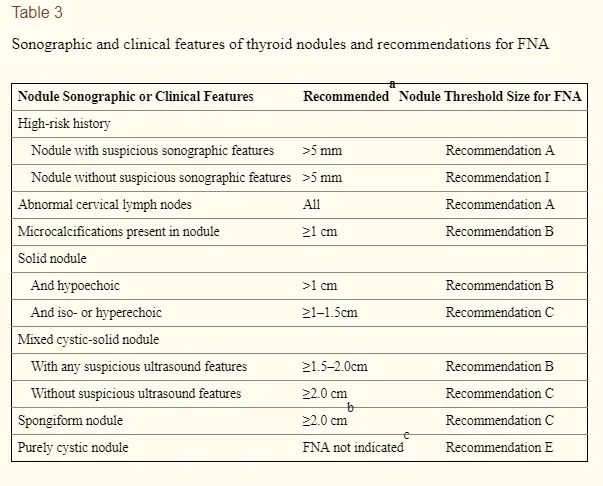
The waiting game can cause unneeded stress and anxiety to you the patient as you wait.
Furthermore, you don’t really want to get a biopsy unless absolutely necessary because there are small risks involved (10) with any medical procedure.
The risk of bleeding or infection is small, but they are still real and present.
For these reasons, you really don’t want to get a biopsy unless absolutely necessary based on the size of your nodule or based on the features your nodule has on ultrasound testing.
Most recommendations suggest getting a biopsy if your nodule is greater than 1.0 cm by itself.
Conclusion
Most thyroid nodules are not cancerous and are not something that you should be worried about.
Even though this is true, it’s still a good idea to get properly evaluated by your doctor to ensure that your thyroid nodule is completely benign.
When you get your nodule tested, be sure to also look for other thyroid conditions which are frequently associated with thyroid nodules.
These conditions, if not treated, can lead to quality of life problems such as fatigue, weight gain, and so on.
Now I want to hear from you:
Do you have a thyroid nodule?
Are you showing signs which are concerning?
Have you had your nodule tested yet?
What did you find?
Leave your comments or questions below!
